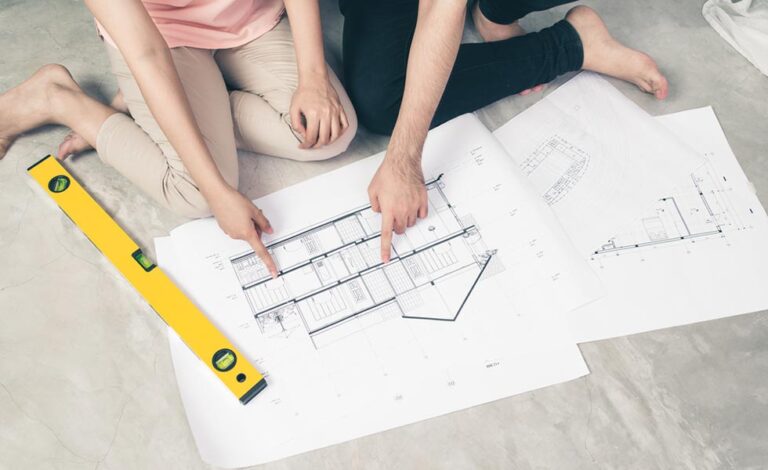Foreign Investment Review Board Approval and Purchaser Declaration Requirements when Purchasing Real Estate
What is the Foreign Investment Review Board (FIRB)?
FIRB is an Australian government department that assesses applications from foreigners who would like to invest or buy a home in Australia.
Who needs FIRB approval?
Temporary residents
If you’re on a temporary visa such as a spouse visa, 457 work visa, a Temporary Skill Shortage (TSS) visa or student visa then you:
- Need approval from the FIRB.
- Can only buy one established dwelling, and it must be to live in; however you will be required to sell it once you do not live there anymore.
- Can buy an investment property; however, it must be a new property or vacant land to build a new property.
You don’t need FIRB approval if you’re buying the property with an Australian citizen as joint tenants and you’re in a spousal relationship. This doesn’t apply to other relationships like business partners, mother/father and child, siblings, friends or relatives.
Foreign investors
If you’re a foreign investor:
- You need approval from the FIRB.
- The investment property must be a new property or vacant land to build a new property.
- You can’t buy an established dwelling as an investment property.
- You can buy a new property in your name and rent it out to your child that is on a temporary visa.
Exceptions for foreign citizens
However, you are exempt if:
- The property developer has obtained an exemption certificate for the new property that you are buying.
- You inherited the property.
- You were awarded the property by a court order.
- You were awarded the property in a divorce settlement.
Who doesn’t need FIRB approval?
Australian citizens
If you’re an Australian expat living overseas or Australian citizen living in Australia:
- You don’t need approval from the FIRB.
- You can buy a new property, existing property or vacant land.
- You can live in the property, or it can be an investment.
Australian permanent resident
If you’re a foreign national who has a permanent residency visa:
- You don’t need approval from the FIRB.
- You can buy a new property, existing property or vacant land.
- You can live in the property, or it can be an investment.
New Zealand citizen
If you’re a New Zealand citizen:
- You don’t need approval from the FIRB.
- You can buy a new property, existing property or vacant land.
- You can live in the property, or it can be an investment.
- You are not required to be in the country at the time of contract exchange or settlement; however, you may incur a foreigner stamp duty surcharge if you are not in the country at the time of contract exchange.
Most Australian states (other than Tasmania and Northern Territory) have introduced a foreign stamp duty surcharge as well as a hike on land tax (for some locations).
In NSW you must have been in Australia for 200 days prior to entering into the contract. When completing your Purchaser Declaration, you must apply for a Movement Report from the Department of Home Affairs and provide a copy of your Visa together with your identification documents to your legal representative.
Note: Even if you are a New Zealand citizen ALL permanent residents must provide a Movement Report and copy of their Visa with their Purchaser Declarations which is required when stamping the Contract.
Generally speaking, the surcharge applies to foreigners or temporary Australian residents, but there are exceptions to these rules. It is best to speak to the relevant state revenue authority for up-to-date information.
Temporary resident buying with an Australian citizen spouse
If you’re on a temporary visa such as a spouse visa, 457 work visa, or student visa and are buying the property with your Australian citizen spouse* then:
- You don’t need FIRB approval if you are buying property as joint tenants and you’re in a spousal relationship. This means it doesn’t apply to other relationships like business partners, mother/father and child, siblings, friends or relatives.
- You’ll need FIRB approval if you are buying the property together as tenants in common.
- You can buy a new property, existing property or vacant land.
- You can live in the property, or it can be an investment.
* Australian citizen spouse includes de facto partner (both same-sex and different-sex).
Foreigner buying a home with an Australian citizen
- You don’t need approval if you are buying a home together as joint tenants and in a spousal relationship.
- This applies to both residential property and residential investment property.
- If purchasing commercial property enquiries should be made at FIRBenquiries@treasury.gov.au.
- You must be in a spousal or de facto relationship, i.e. can’t be two family members or relatives.
- You must not be purchasing as tenants in common.
Foreigner buying a home with an Australian permanent resident
- You don’t need approval if you are buying a home together as joint tenants and in a spousal relationship.
- This applies to both residential property and residential investment property.
- If purchasing commercial property enquiries should be made at FIRBenquiries@treasury.gov.au.
- You must be in a spousal or de facto relationship, i.e. can’t be two family members or relatives.
- You must not be purchasing as tenants in common.
Does buying as an investment or owner-occupied make a difference?
Will it make a difference if you live in the property or not? As a general rule, investment properties are accepted more readily.
If you’re on a temporary visa or work visa then you can:
- Usually buy a new property or an established property.
- You will usually be required to sell your home when you leave Australia.
- If you obtain citizenship or permanent residency, then you won’t have to sell your property.
If you’re a foreign citizen living overseas then you:
- Are unlikely to be allowed to buy a property to live in Australia. This is because you don’t have a valid visa which allows you to stay in Australia.
- If you’ve been granted a temporary residency visa, then you may be able to buy a home before you move.
We stress that each matter is subject to its own individual circumstances and nuances and seeking legal advice to ensure your matter is handled appropriately and smoothly is strongly advisable.
Important Disclaimer: The content of this article is general in nature and for reference purposes only. It does not constitute legal advice and should not be relied upon as such. Legal advice about your specific circumstances should always be obtained before taking any action based on this publication.











